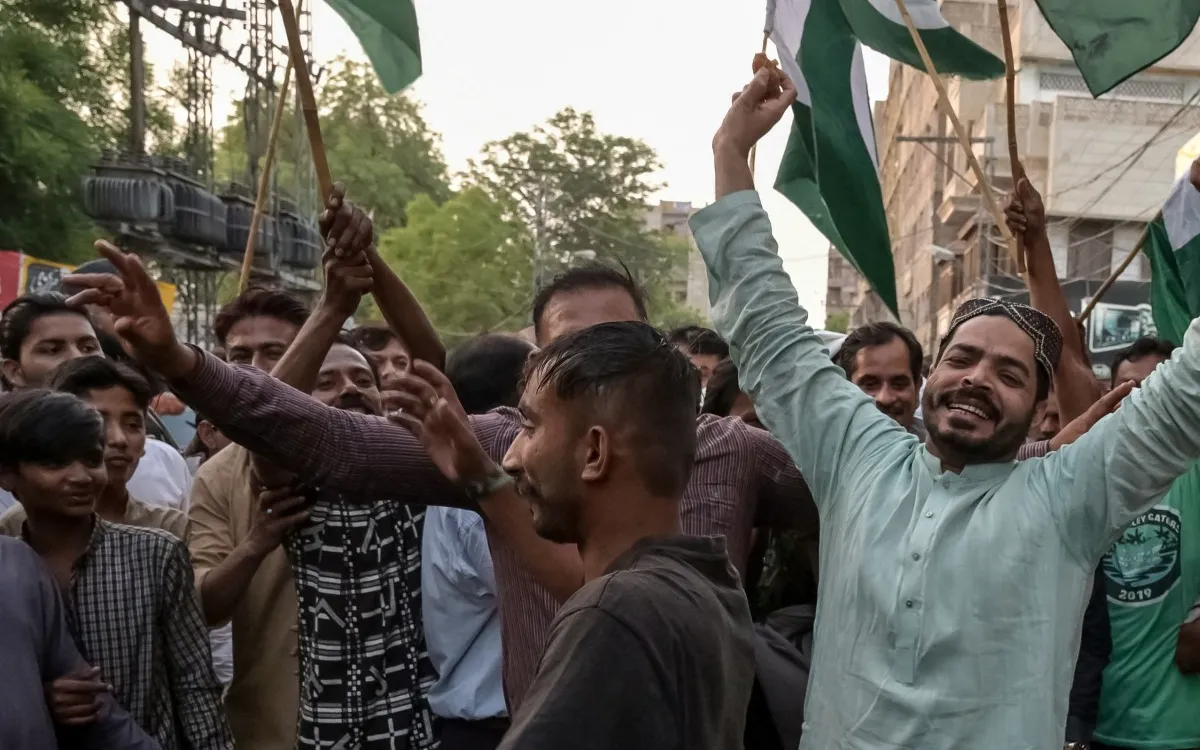
India and Pakistan have reached a crucial agreement for an immediate ceasefire following days of heightened military tensions and deadly cross-border attacks. This development has raised significant concerns regarding the potential for an all-out war between these two nuclear-armed neighbors, marking the fifth such instance since their independence in 1947. Despite the announcement of the ceasefire, reports of violations emerged almost immediately, with explosions reported in parts of Indian-administered Kashmir.
India's Foreign Secretary, Vikram Misri, addressed the media, stating: “In the last few hours, there have been repeated violations of the understanding reached earlier today between the director generals of military operations from both India and Pakistan.” He emphasized the need for Pakistan to take immediate action to rectify these violations, asserting that India’s military has been instructed to respond decisively to any breaches of the ceasefire.
The agreement came after military officials from both nations communicated and agreed to halt all fighting by 17:00 Indian time (11:30 GMT) on Saturday. This was intended to cease all military operations across land, air, and sea. Misri indicated that discussions between the military chiefs would continue, with further communication scheduled for May 12.
The announcement of the ceasefire was initially met with relief and celebrations in both India and Pakistan, particularly among residents in the disputed region of Kashmir. However, this sense of optimism quickly waned as explosions were reported shortly after the ceasefire took effect. Omar Abdullah, the Chief Minister of the federal territory, expressed his dismay over the situation with a post on social media: “What the hell just happened to the ceasefire? Explosions heard across Srinagar.”
Correspondents from Al Jazeera reported that while people were hopeful, there were reminders of the fragile nature of the ceasefire. Local sources indicated ongoing exchanges of fire along the Line of Control in Kashmir, with reports of projectiles entering Pakistani airspace. Residents in Srinagar described distressing scenes, including power outages and air sirens, leaving them feeling “abandoned and unprepared.”
The ceasefire appears to have been facilitated by international mediators, although the details remain unclear. US President Donald Trump claimed responsibility for the mediation efforts, announcing the ceasefire on social media and congratulating both nations for their decision. However, analysts have raised questions about the actual influence of the US and other nations in this diplomatic effort, noting that multiple countries were involved in the discussions.
Pakistan’s Foreign Minister, Ishaq Dar, emphasized that the ceasefire agreement was comprehensive and involved nearly three dozen countries. Furthermore, US Secretary of State Marco Rubio mentioned plans for broader discussions at a neutral venue, a claim that contrasts with a statement from India’s Ministry of Information and Broadcasting, which denied any plans for further talks.
Amid the ceasefire, both countries have agreed to engage in broader discussions on various critical issues. Sources have revealed that measures implemented by India against Pakistan since April 22, particularly regarding trade and visas, will remain in effect. A significant point of contention is the Indus Waters Treaty, which regulates water sharing between the two nations. India suspended its obligations under this treaty last month, impacting agriculture and livelihoods on both sides.
Experts have noted the urgency of addressing these fundamental political issues to prevent further military escalations. Elizabeth Threlkeld from the Stimson Centre highlighted the importance of timely negotiations, especially given the seasonal water flow dynamics between the two countries.
In the aftermath of the ceasefire announcement, residents on both sides of the Line of Control expressed a mixture of relief and apprehension. Rumaisa Jan, a 25-year-old resident of Srinagar with a wedding scheduled soon, remarked, “I was extremely anxious about what was happening. We want peace and an end to all these hostilities.”
Firdous Ahmad Sheikh, a local business owner, voiced his frustration over Kashmir’s ongoing conflict, urging both nations to find a political solution to the region's issues. Residents in Muzaffarabad, the capital of Pakistan-administered Kashmir, shared a similar sentiment, with Zulfikar Ali stating, “For us, peace means survival. We’ve suffered enough. I’m glad that both Pakistan and India have made a sensible decision.”